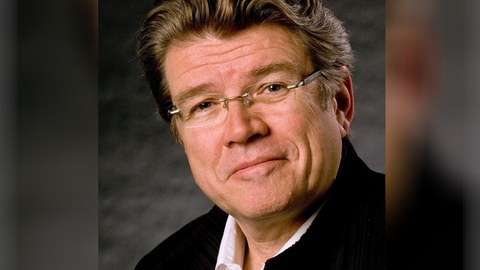Jan 05, 2023
Prof. Bennett - Dresden Senior Fellow bei Prof. Marianne Kneuer
Name: Lance Bennett
Chair: Chair of Political Systems and Comparative Politics
Institute: Institut of Political Science
Faculty: Faculty of Arts, Humanities and Social Science
Lance Bennett is Emeritus Professor of Communication and Political Science and Senior Research Fellow at the Center for Journalism, Media and Democracy at the University of Washington, Seattle. He has lectured and published on media and information systems, press-government relations, citizenship and civic engagement, digital activism, and problems of disinformation in democracies. His current work focuses on two areas: a) the origins and effects of disinformation systems in democracies, and b) better aligning environment, economy and democracy to build more equitable and sustainable societies. He has held visiting professorships at Harvard, Uppsala, Stockholm, and Free University, Berlin, and was awarded honorary doctorates from Uppsala and Bern. He has received career achievement awards from the American Political Science Association, The International Communication Association, and the US National Communication Association, along with a German Humboldt Research Prize for distinguished international scholarship. Selected publications include: The Logic of Connective Action (Cambridge 2013, with Alexandra Segerberg), The Disinformation Age (open access, Cambridge 2020, with Steven Livingston), and Communicating the Future: Solutions for Environment, Economy and Democracy (Polity 2021).
What are your main interests as a researcher? Which topics do you focus on?
During my TUD Fellowship I am working with Prof. Dr. Marianne Kneuer on how challenges to liberal democratic communication systems disrupt democratic institutions and create divided publics in many nations today. In particular, we are looking at the disruptive effects of hate speech, conspiracies and disinformation, particularly when coming from elected parties and leaders on the radical right. We want to understand why some societies such as Germany have been relatively more able to contain these problems, while others such as the US and the UK have fallen down the ranks of strong democracies.
What was your most interesting research topic so far?
The uses of digital media to create networked political organizations that have the capacity to do some of the things that define more conventional organizaitons: distribute resources, make decisions, plan and mobilize actions, and filter complex information flows. These networked organizations have been important for political movements on both left and right in recent years.
What does your current research focus on?
The spread of disinformation in many democracies, and the disruptive effects on societies and political institutions. The fact that disinformation is spreading in so many different democracies, reveals common identity threats on the right, particularly the rise of white Christian nationalism in response to immigration and the demands for recognition from various racial, sexual and religious identity groups on the left. The underlying organization of these divisive disinformation systems involves coordination among right-wing parties, think tanks and media sites.
Which item do you absolutely need at your workplace?
It is important to have a good team of researchers with different skills who work well together on complex problems. I have found this at TUD.
Do you have a favourite quote? If so, what is it and from whom?
"We cannot solve our problems with the same thinking we used when we created them." This has been attributed to Einstein. It reminds me that the bad ideas that created many of our current problems are still behind attempts to solve them. For example, the idea that technology can be used at scale to remove carbon form the atmosphere and oceans before it is too late. Such thinking means that our current economic systems and lifestyles will continue to extinguish life on the planet.
Which book did you recently read? / Which movie/series did you watch recently?
I recently finished Ian McEwan’s Lessons. It was a difficult book because of the subject. It follows the life of a man from his boyhood as the victim of sexual abuse, and the shadow that it cast over the rest of his life.
Best non-fiction: Tony Judt, Postwar: A History of Europe Since 1945.
I enjoyed the TV series Berlin Station both because of the setting in contemporary Berlin, and because it looked at tensions after the cold war that have been badly managed by both sides (for example, efforts by Russia to use hybrid warfare to disrupt Western democracies)
More information about you can be found:

